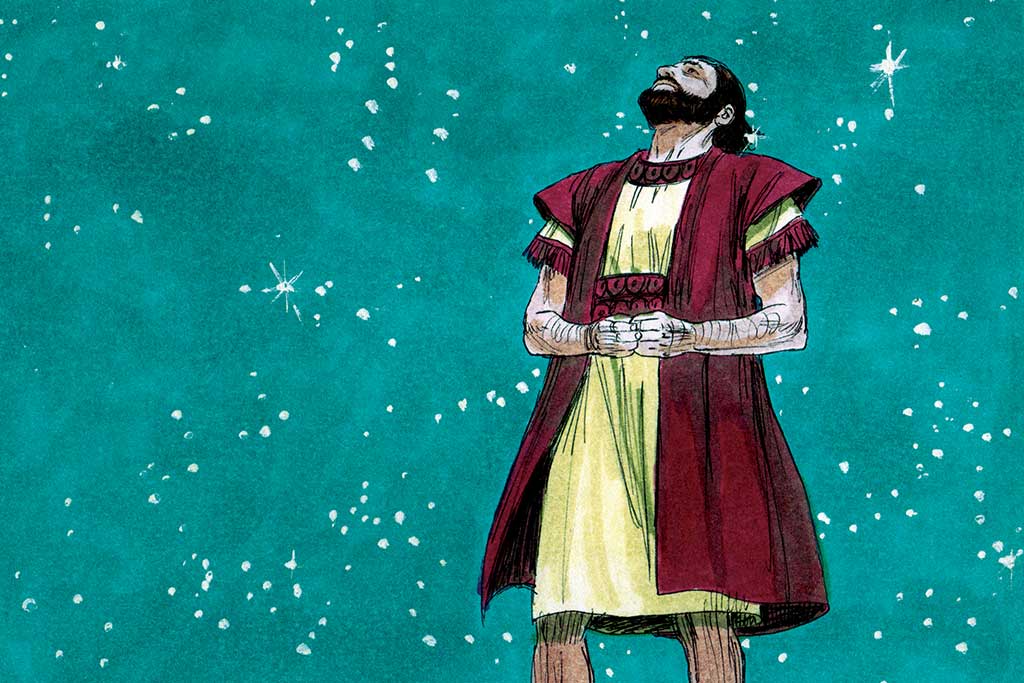Abraham, a seminal figure in the Bible, occupies a special place in the hearts of Jews, Christians, and Muslims alike. Known as the patriarch of monotheism, his life is punctuated by extraordinary promises and profound lessons. Here are ten intriguing facts about Abraham that offer insight into his character and the legacy he left behind.
1. The Ultimate Test of Faith
One of the most renowned narratives concerning Abraham is the Binding of Isaac, also known as the Akedah. In this poignant story, God commands Abraham to sacrifice his son Isaac as a test of faith. The gravity of this divine request showcases Abraham’s unwavering commitment to God. As he prepares to carry out this heart-wrenching task, an angel intervenes at the last moment, providing a ram as a substitute offer. This event not only cements Abraham’s reputation as the “father of faith” but also symbolizes the profound depths of human devotion.
2. A Covenant with God
God established a covenant with Abraham, a pivotal agreement that would shape the destiny of entire nations. This covenant entailed a promise that Abraham would become the father of a great multitude, with descendants as numerous as the stars in the sky. This promise, known as the Abrahamic Covenant, was foundational, laying the groundwork for the Jewish people and influencing Islamic and Christian traditions as well. The covenant signifies a shift in perspective, emphasizing a personal relationship between God and Abraham.
3. The Name Change
Originally named Abram, meaning “exalted father,” Abraham received a new name after the covenant. The name change to Abraham, meaning “father of many nations,” signified his elevated status and the divine promise regarding his descendants. This transformation reflects not only a personal evolution but also a broader narrative about identity and purpose. It serves as a reminder that sometimes our identities are interwoven with our destinies, calling us to fulfill greater roles.
4. The Journey of Faith
Abraham’s life was marked by a series of journeys that symbolize the quest for faith and obedience. Leaving his homeland of Ur and venturing into Canaan, he exemplified the profound notion of stepping into the unknown. This journey encapsulates the idea that faith often requires us to relinquish the familiar for the promise of something greater. Each step Abraham took was laden with uncertainty, yet it reinforced a central tenet: faith often flourishes in the liminal spaces of life.
5. Intercessor for Sodom and Gomorrah
In a notable episode, Abraham interceded for the cities of Sodom and Gomorrah, pleading with God to spare them if a certain number of righteous people could be found. This moment highlights not only his compassion but also a unique aspect of his character: the willingness to stand in the gap for others. It presents an intriguing image of an individual who, despite his own standing, advocates on behalf of the vulnerable, raising questions about justice, mercy, and moral responsibility.
6. The Birth of Isaac
Abraham’s fatherhood journey took unexpected turns, particularly with the birth of his son Isaac at the age of 100. This miraculous event accentuates the theme of hope against hope, highlighting the notion that God’s promises often transcend human limitations and expectations. The laughter surrounding Isaac’s name—meaning “he laughs”—serves as a powerful reminder that joy can emerge even from seemingly impossible circumstances. It underscores the idea that faith can yield astonishing outcomes when aligned with divine will.
7. The Role of Sarah
Abraham’s wife, Sarah, plays a crucial role in the narrative. Originally named Sarai, meaning “my princess,” she too experienced a name change in light of the covenant, becoming Sarah, or “princess.” Her laughter at the prospect of bearing a child in her old age adds depth to the story, showcasing a blend of skepticism and faith. Sarah’s journey from doubt to belief illustrates the complexities of the human response to divine promises and the partnership of faith between spouses.
8. The Multinational Legacy
The legacy of Abraham extends far beyond his immediate family. He is considered a patriarch in Judaism, Christianity, and Islam, known collectively as the Abrahamic religions. This triadic connection underscores the theological implications of his life and highlights his role as a unifying figure across different faiths. The diverse interpretations of Abraham’s story invite curiosity about the shared heritage among these religions, prompting an exploration of interfaith dialogue and unity.
9. The Sign of the Covenant
The sign of the covenant between God and Abraham is the practice of circumcision, which is instituted as a physical reminder of their unique relationship. This rite serves as a tangible manifestation of the spiritual bond shared by Abraham and his descendants. The significance of physical symbols in religious contexts paves the way for reflections on how faith is expressed through corporeal acts, thereby forging a confluence between the spiritual and the material.
10. The Enduring Lessons
Abraham’s life and experiences pose enduring lessons about faith, obedience, and the multifaceted nature of divine promise. His journey encourages believers to confront their doubts and challenges while remaining steadfast in their commitments. His example as an intercessor, a devoted father, and a figure of hope cultivates a rich tapestry of teachings that resonate through generations. Each fact about his life invites reflection on how faith can navigate the complexities of existence and inspire transformative journeys.
In contemplating these fascinating facets of Abraham’s story, one cannot help but appreciate the intricate relationship between faith, promise, and legacy. His narrative continues to evoke curiosity while providing a lens through which to examine our own faith journeys.










